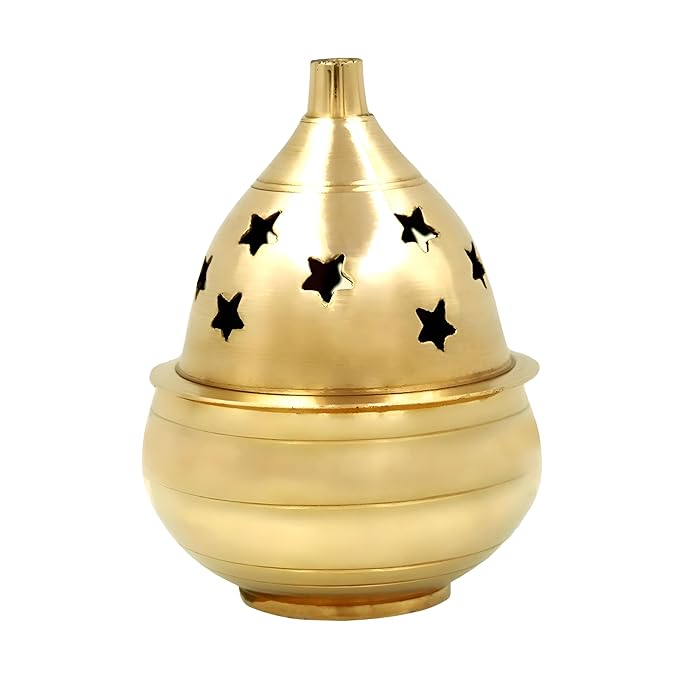भाई दूज हिन्दू धर्म का एक महत्वपूर्ण त्योहार है जिसे दिवाली के दो दिन बाद मनाया जाता है। यह दिन भाई-बहन के रिश्ते को समर्पित होता है। इस त्योहार को उत्तर भारत में भैया दूज, महाराष्ट्र में भाऊ बीज, और बंगाल में भाई फोंटा के नाम से जाना जाता है।
इस दिन बहनें अपने भाइयों की लंबी उम्र और कल्याण के लिए उनके माथे पर तिलक लगाती हैं। इसके बदले में, भाई अपनी बहनों को उपहार देते हैं और उनकी सुरक्षा का वादा करते हैं। यह त्योहार भाई-बहन के बीच के गहरे प्रेम और स्नेह को दर्शाता है।
महत्व: इस त्योहार के साथ कई कथाएँ जुड़ी हुई हैं। एक प्रमुख कथा के अनुसार, मृत्यु के देवता यमराज ने इस दिन अपनी बहन यमुना से मिलने का वादा किया था। यमुना ने यमराज का स्वागत तिलक और विशेष भोजन से किया। इसके बदले में, यमराज ने वादा किया कि जो भाई इस दिन अपनी बहन से तिलक प्राप्त करेंगे, वे दीर्घायु और सुरक्षित रहेंगे।
रिवाज:
- बहनें अपने भाइयों के लिए आरती करती हैं।
- वे भाई के माथे पर तिलक लगाती हैं।
- भाई बहन को उपहार देते हैं।
- परिवार एक साथ भोजन करता है, जिसमें विशेष मिठाइयाँ बनाई जाती हैं।
उत्सव: भाई दूज भारत के विभिन्न हिस्सों में बड़े उत्साह के साथ मनाया जाता है। यह परिवारिक मिलन, उपहारों के आदान-प्रदान और विशेष भोज के साथ मनाया जाता है।
Overview of Bhai Dooj
Title & Meaning
Bhai Dooj is a traditional Hindu festival celebrating the bond between brothers and sisters, observed with rituals and prayers.
Date & Day in 2025
Bhai Dooj 2025 falls on [insert date], typically celebrated on the second day after Diwali.
Religious Significance
The festival signifies sibling love, protection, and the well-being of brothers, with sisters performing Tika rituals.
Regional Observance
Celebrated across India under different names like Bhai Tika, Bhai Phonta, and Bhai Dooj, with regional variations.
Audience & Participation
Sisters, brothers, and families participate in prayers, feasts, and gift exchanges to honor sibling bonds.
Festival Rituals & Customs
Tika & Aarti
Sisters apply a ceremonial Tika on their brother’s forehead, perform aarti, and pray for their longevity and success.
Gift Exchange
Brothers and sisters exchange gifts, sweets, and tokens of affection to reinforce their bond.
Special Meals & Sweets
Families prepare traditional sweets and festive dishes like Laddoos, Barfi, and Puri-Sabzi for the occasion.
Community Celebrations
In some regions, Bhai Dooj is celebrated in community events and temple gatherings with cultural programs.
Traditional Dress & Decor
Participants wear festive attire, decorate homes, and create rangoli designs to enhance the celebratory mood.
Spiritual Significance & Beliefs
Auspiciousness & Blessings
The festival is believed to bring prosperity, health, and protection to brothers through sisterly prayers and rituals.
Legends & Stories
Legends associated with Lord Yama and Yamuna explain the origins of Bhai Dooj and the protective bond of siblings.
Devotional Practices
Families visit temples, chant prayers, and perform rituals seeking divine blessings for brothers’ safety and success.
Cultural Teachings
Bhai Dooj reinforces family values, respect, and love between siblings across generations.
Role in Social Life
Strengthens family relationships, encourages emotional bonding, and upholds traditional cultural values.
Festival Foods & Sweets
Traditional Dishes
Special festive foods and sweets like Kheer, Halwa, Laddoos, and Barfi are prepared to mark the occasion.
Regional Variations
Different regions include local specialties and delicacies, enhancing the cultural richness of Bhai Dooj.
Prasad & Sharing
Food is often offered to elders or shared among family members as a symbol of love and togetherness.
Fasting & Ritual Meals
Some families observe light fasting or prepare specific ritual meals to honor the festival’s spiritual aspect.
Seasonal Ingredients
Uses seasonal ingredients and traditional recipes to celebrate harvests and festive abundance.
How to Observe & Share
Planning & Preparations
Plan prayers, Tika rituals, gifts, and meals ahead to ensure meaningful and organized celebrations.
Sharing Cultural Knowledge
Teach younger generations about the history, significance, and traditional practices of Bhai Dooj.
Digital & Social Sharing
Share Bhai Dooj wishes, rituals, and live celebration videos on social media to connect with a wider audience.
Printable Guides & Checklists
Provide printable Tika guides, gift ideas, and ritual checklists for families to follow easily.
SEO & Engagement Enhancements
Optimize content with keywords like Bhai Dooj 2025, Brother Sister Festival, Tika Rituals, Family Bonding; include social sharing features.
Bhai Dooj is a traditional Hindu festival celebrating the bond between brothers and sisters, observed with rituals and prayers.
Bhai Dooj 2025 falls on [insert date], typically celebrated on the second day after Diwali.
The festival signifies sibling love, protection, and the well-being of brothers, with sisters performing Tika rituals.
Celebrated across India under different names like Bhai Tika, Bhai Phonta, and Bhai Dooj, with regional variations.
Sisters, brothers, and families participate in prayers, feasts, and gift exchanges to honor sibling bonds.
Sisters apply a ceremonial Tika on their brother’s forehead, perform aarti, and pray for their longevity and success.
Brothers and sisters exchange gifts, sweets, and tokens of affection to reinforce their bond.
Families prepare traditional sweets and festive dishes like Laddoos, Barfi, and Puri-Sabzi for the occasion.
In some regions, Bhai Dooj is celebrated in community events and temple gatherings with cultural programs.
Participants wear festive attire, decorate homes, and create rangoli designs to enhance the celebratory mood.
The festival is believed to bring prosperity, health, and protection to brothers through sisterly prayers and rituals.
Legends associated with Lord Yama and Yamuna explain the origins of Bhai Dooj and the protective bond of siblings.
Families visit temples, chant prayers, and perform rituals seeking divine blessings for brothers’ safety and success.
Bhai Dooj reinforces family values, respect, and love between siblings across generations.
Strengthens family relationships, encourages emotional bonding, and upholds traditional cultural values.
Special festive foods and sweets like Kheer, Halwa, Laddoos, and Barfi are prepared to mark the occasion.
Different regions include local specialties and delicacies, enhancing the cultural richness of Bhai Dooj.
Food is often offered to elders or shared among family members as a symbol of love and togetherness.
Some families observe light fasting or prepare specific ritual meals to honor the festival’s spiritual aspect.
Uses seasonal ingredients and traditional recipes to celebrate harvests and festive abundance.
Plan prayers, Tika rituals, gifts, and meals ahead to ensure meaningful and organized celebrations.
Teach younger generations about the history, significance, and traditional practices of Bhai Dooj.
Share Bhai Dooj wishes, rituals, and live celebration videos on social media to connect with a wider audience.
Provide printable Tika guides, gift ideas, and ritual checklists for families to follow easily.
Optimize content with keywords like Bhai Dooj 2025, Brother Sister Festival, Tika Rituals, Family Bonding; include social sharing features.


